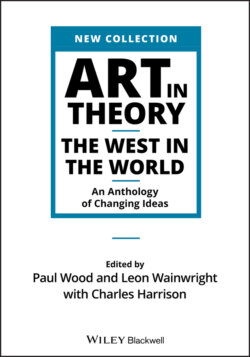Читать книгу Art in Theory - Группа авторов - Страница 108
IIA9 Sir William Jones (1746–94) from his Discourses to the Asiatick Society of Bengal
ОглавлениеWilliam Jones showed an early proficiency in the study of languages, both ancient and Oriental. By his mid‐twenties he had gained a reputation as an Oriental scholar with several noted translations to his name and had been elected to the Royal Society. For financial reasons, in the 1770s he turned to the study of law, where he also achieved prominence. A republican sympathizer and supporter of the American revolution, he was at one time thought to be about to go to America to help draft the Constitution. In the event, however, he was appointed to the Supreme Court of Bengal, and he arrived in Calcutta in 1783. Among his achievements there were the founding of the Asiatick Society of Bengal in 1784 and of its journal, Asiatick Researches. The present extracts are reprinted from his first two annual Discourses to the society. The first, from 1784, titled ‘A Discourse on the Institution of a Society for Inquiring into the History, Civil and Natural, The Antiquities, Arts, Sciences and Literature of Asia’ gives some sense of the scope of Jones’s project. The ‘Second Anniversary Discourse’, delivered on 24 February 1785, is interesting for its assessment of the relations between European and Asiatic science and culture. At one level, with its clear assertion of the primacy of Greek‐based European civilization and Jones’s statement of the purpose of the society’s investigations being to go beyond ‘mere curiosity’ and aim instead at ‘our own improvement and advantage’, this may seem to conform to later criticisms of Enlightenment knowledge‐projects as being a mere cloak for imperialist expansion. But it must be remembered also that Jones is speaking both culturally, from a position of advocacy of the value of Asian civilization on a world scale, and judicially, from a principled commitment to the equality of Indians before the law. The late eighteenth‐century situation of the British presence in India exhibited connections with – but also marked differences from – the exclusionary norms of fully fledged nineteenth‐century imperialism. Our extracts are from The Works of Sir William Jones in 13 volumes, by Lord Teignmouth, vol. 3, London, 1807, pp. 1–6, 12–13 and 16–19.
